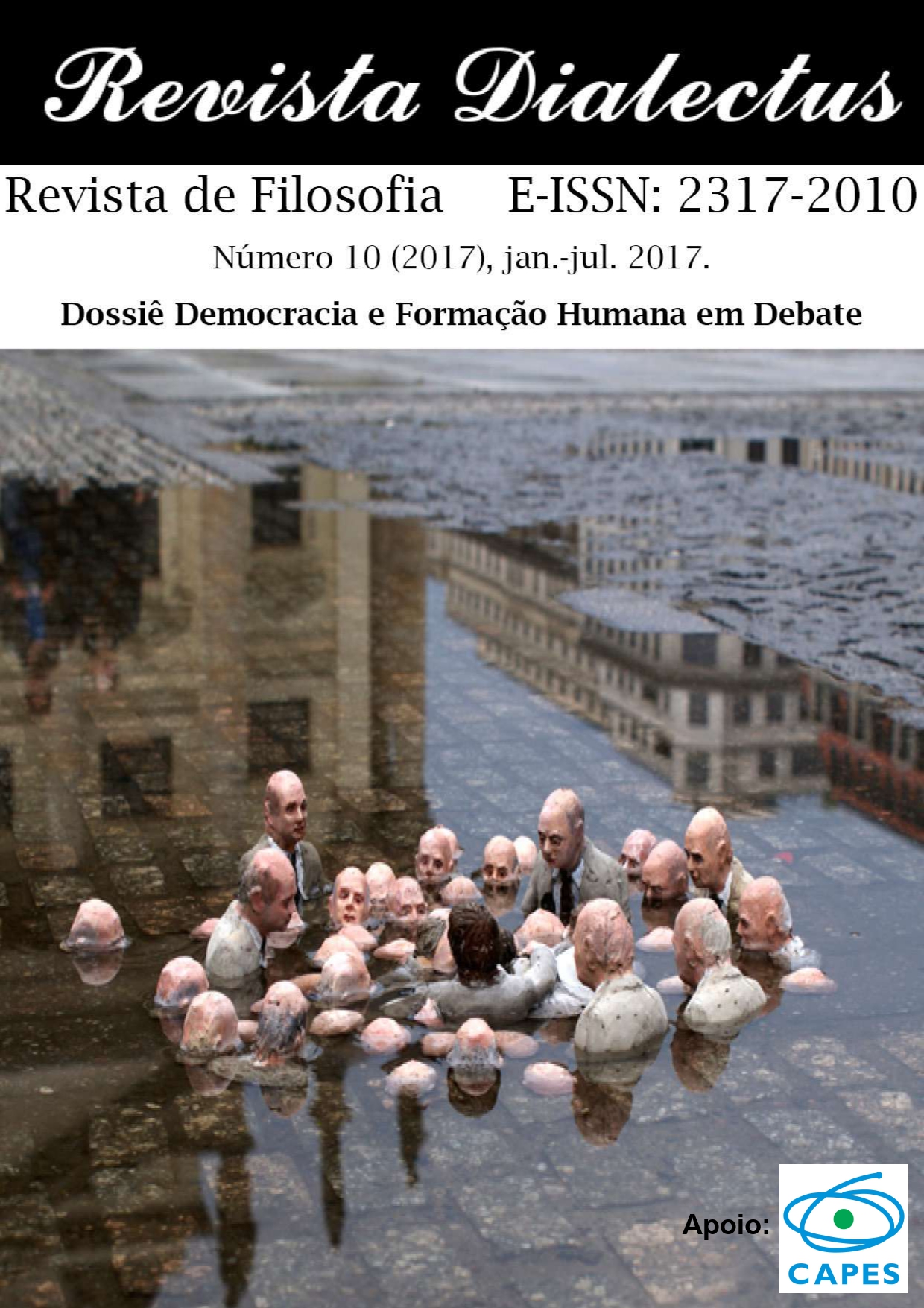DEMOCRACIA E FORMAÇÃO HUMANA: A DIMENSÃO IDEOLÓGICA DESTES CONCEITOS NO CONTEXTO DA SOCIEDADE CAPITALISTA
DOI:
https://doi.org/10.30611/2017n10id19918Abstract
O presente artigo tem o objetivo de analisar a formação do senso comum no contexto da sociedade capitalista, tendo como referencial teórico escritos de Marx e de Gramsci. Abordamos a dimensão ideológica da política implícita na forma de pensar comum e no modo como assimila conceitos sem crítica. Explicitam-se os limites e possibilidades das noções de democracia e de formação humana, tendo como horizonte a luta de classes. O aspecto educativo se expressa na superação da aparência do empírico imediato para mostrar as relações de força que este imediato oculta. Na abordagem dialética o empírico não é o imediatamente dado, que se constitui em aparência do real, mas sim o fato em seu contexto, enquanto elemento de uma estrutura social determinada, com uma dimensão histórica pela qual se produz o movimento da vida material e espiritual. A formação humana não pode se realizar em uma sociedade dividida e marcada pela extrema desigualdade social como é a sociedade capitalista.
Palavras-Chave: Estado, democracia, formação humana, ideologia, educação.
Downloads
Published
Issue
Section
License
Authors who publish in this journal agree to the following terms:
- Authors retain the copyright and grant the journal the right of first publication, with the work simultaneously licensed under the Attribution-NonCommercial-NoDerivatives 4.0 International (CC BY-NC-ND 4.0) License, which allows the non-commercial sharing of work, without modifications and with acknowledgment of authorship and initial publication in this journal.
- Authors are authorized to take additional contracts separately, for non-exclusive distribution of the version of the work published in this journal (eg publish in institutional repository or as a book chapter), with acknowledgment of authorship and initial publication in this journal.
- Authors are allowed and encouraged to publish and distribute their work online (eg in institutional repositories or on their personal page) at any point before or during the editorial process, as this can generate productive changes as well as increase the impact and citation of published work (See The Free Access Effect).



















